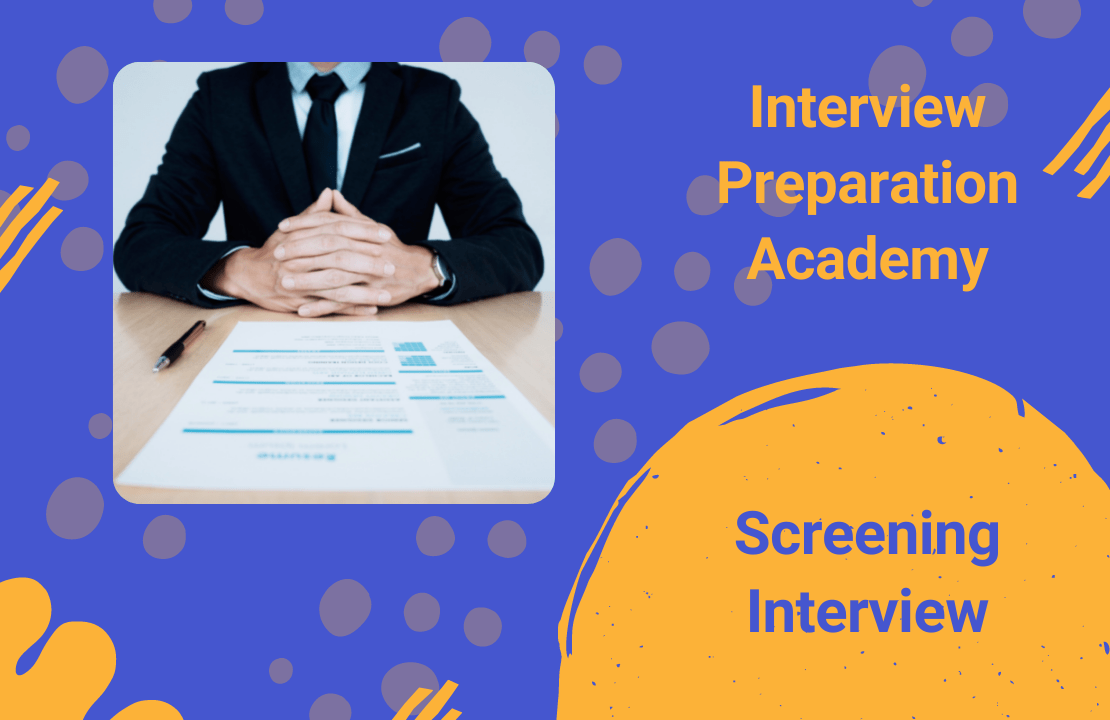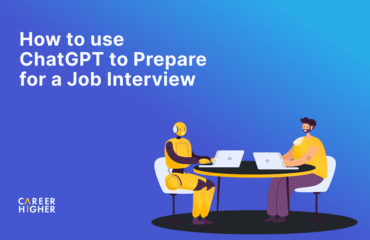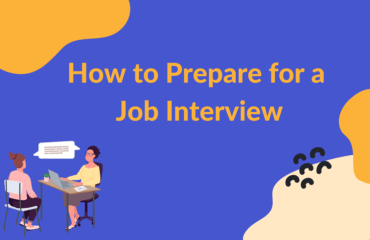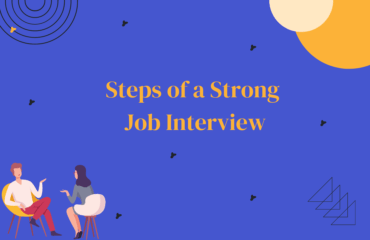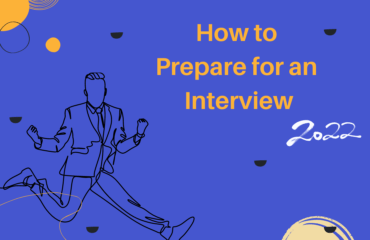Table of Contents
It is time to move to the next step of your life and pursue your dream job. Whether you are a veteran or not, it is time to sharpen your interview skills and make the best out of your upcoming screening interview. In this blog post, we are going to talk about the screening interview preparation which includes communication with the recruiter via phone, live video interview, or pre-recorded videos.
We have put together a list of all the necessary steps you need to take before a screening interview. We recommend that you start preparing a few days in advance of the scheduled interview. For the best results, we also advise you to keep notes while following each step. In case any question arises, feel free to contact one of our experts.
1) Read the invitation email twice
In what type of interview are you invited? A phone interview, a virtual meeting, or a pre-recorded video interview? This is the first thing you need to identify by reading the invitation email. Once you sort this out, read carefully what is expected of you and if the invitation includes any details on what will be discussed. Are you supposed to be available on a specific day and time? Do you have to download a specific software? Depending on the type of interview, you need to do different mock interviews, but we will get down to that later.
2) Review the job description
Revisit the job ad and read it carefully. Make sure you understand what the job is about in practice by reading carefully the duties and responsibilities section. Afterward, note down the key job requirements and think of how your background matches the skills and how to articulate this during the interview. Keep in mind that you are not required to be a perfect match to land a job.
Then, identify and analyze any existing gaps. Think of any experience in your life – it could even be outside your day job – anything that has helped you gain relevant skills. These are the so-called transferable skills, the ones that can be transferred from one experience to another. For example, if you haven’t managed a team before, you could think of times when you successfully led a group of people during a project. If you don’t have something in mind, then think of what you could do to gain that skill, such as a course. The goal here is not to find obstacles and judge yourself for not having some skills, but to find ways to conquer them.
3) Research the company
Visit the company’s website and navigate around. Note down what products or services the company provides and any questions you may have. Next, try to identify the values and the mission behind the words. For example, Nike’s motto “Just do it.” presents a company or a group of people who are determined to find a way to accomplish anything. Should you happen to interview with Nike, we would recommend finding ways and expressing how this mission is aligned with your personality traits, with examples either of your professional or personal life.
Another thing you should mark is the company’s workplace culture. Does it operate remotely, in offices or both? What is their working schedule? Is it flexible or traditional? How are employees expected to dress, speak, and act? At the screening stage, recruiters also try to understand if you share and align with the company’s culture instead of only identifying your match with the role.
4) Prepare your answers to typical interview questions
Now that you have all these notes, turn them into questions. We encourage people to get in the shoes of the recruiter and consider what you would ask. You could also add some typical interview questions that a recruiter asks during the screening interview to your list. For example, questions about your:
- Availability (“When could you start on the job?”)
- Salary expectations (“What are your salary expectations?”)
- Resume (“How does your experience make you the right person for the job?”)
- Intent to join the company (“Why did you apply for this job?”)
Your answers should be structured. Keep your answers as short and to the point as possible, especially if you are participating in a pre-recorded video interview. We strongly advise you to be truthful and modest while answering those questions, even when it is about any career issues you might have. However, keep in mind that the recruiters at this point are looking for answers to some high-level questions regarding your experience, skills, availability, and salary expectations.
5) Practice your answers
It is time to practice. Like we said in the beginning, if you are in the screening stage of the hiring process you will likely participate at least in one phone, live video or pre-recorded video interview. In order to make the most out of this interview, we encourage you to speak with a career consultant. Let us see how you can practice each one of these by yourself below:
a) Phone interview
Hand over your notes to a friend and ask them to call you and pretend to be a recruiter. You could also record your conversation while you answer the questions. Listen to the recording and ask for feedback from your friend. How was your tone of voice? Did you sound unsure while answering the interview questions? Once you find what you could improve, repeat the process until you feel ready.
b) Live video interview
The above exercise applies here as well, only this time, you have to do the process over video. Hit the recording button, and once you finish, watch your body language and gestures. Make sure you have everything you need for a virtual interview, such as equipment, software, and a quiet, well-lit room.
c) Pre-recorded video interview
There are two types of pre-recorded video interviews. In the first one, you have the ability to record each answer at your own pace, but during a specific time frame (eg. during one or two days). In the second one too, you have a specific time frame but you have to record your answers all at once. We advise you to identify the type of interview you are participating in and simulate its circumstances (eg. answering 5 questions at once). To remember your answers, you could also note keywords and always remember the S.T.A.R. method for behavioral/situational questions.
On the day of your interview, review your notes but the most important thing is to stay calm and relax. It is important to have a clear mind and a good mood, as you will transfer your vibe to the recruiter. Talk to a friend, listen to your favorite music, meditate, and at the end remember – You’ve got this!
